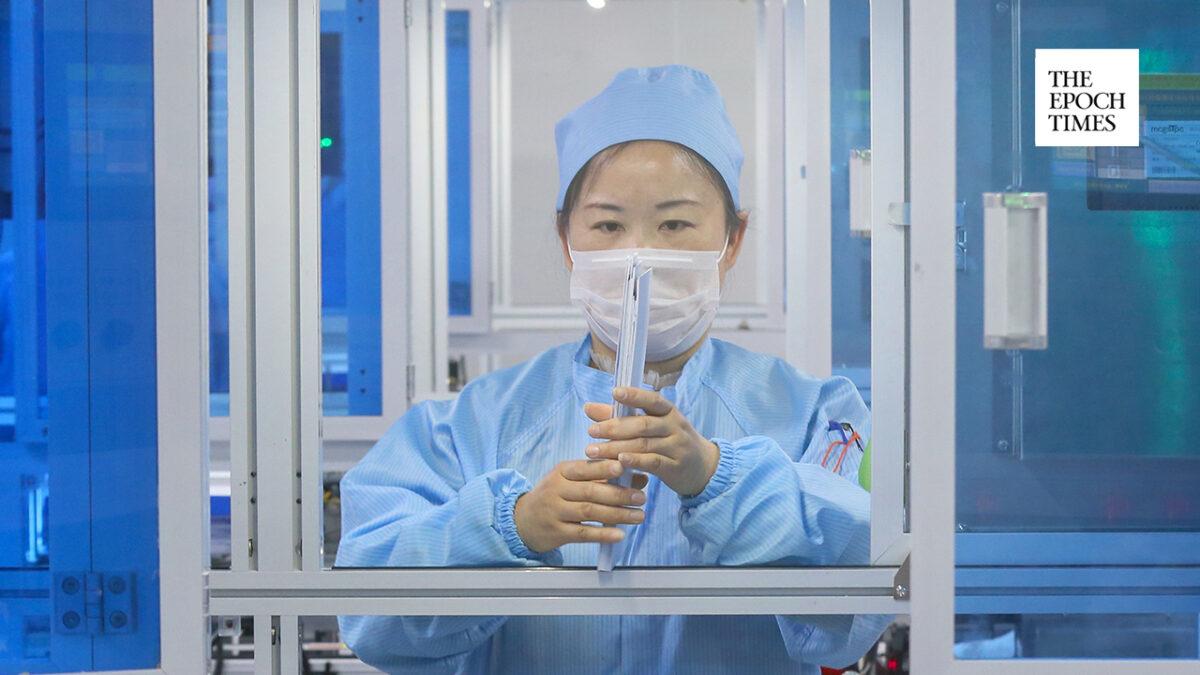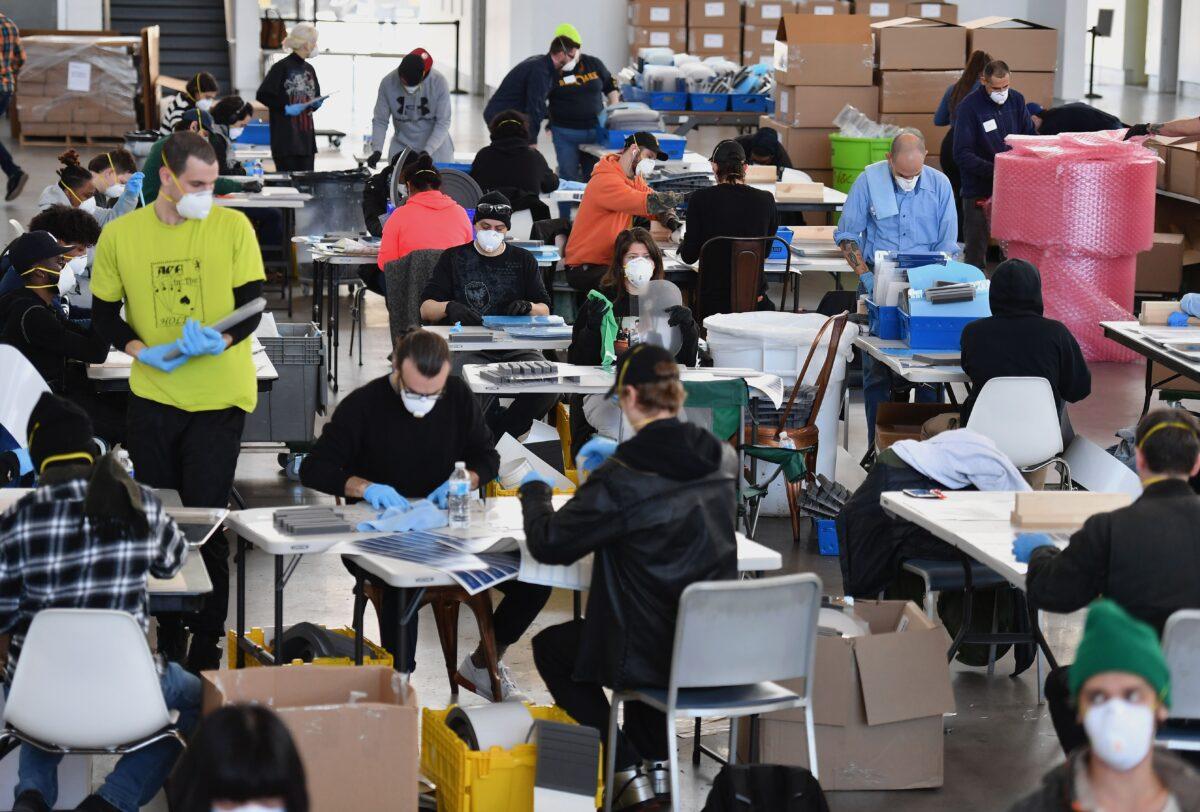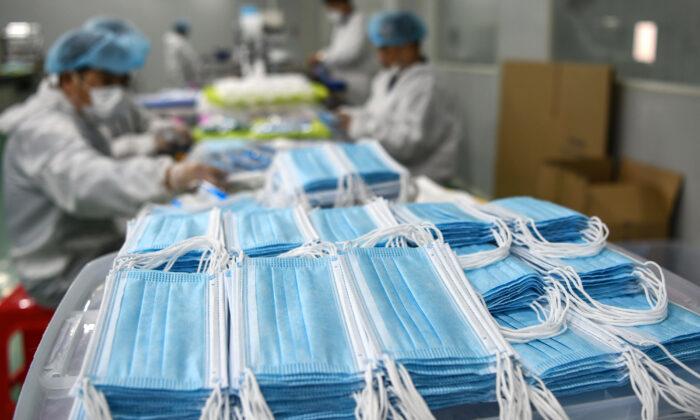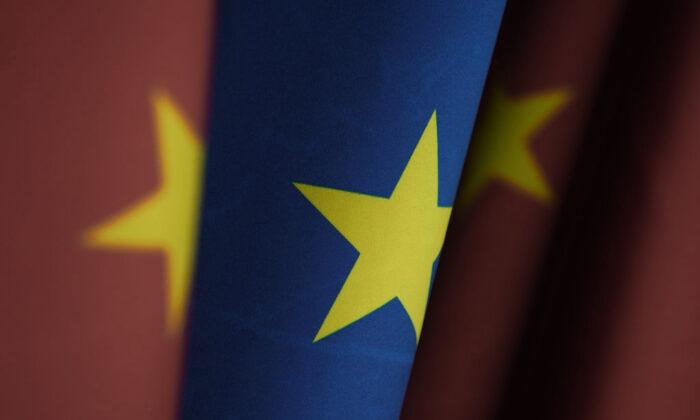That aggressive international trade tactic, called dumping, is illegal per WTO rules yet the Biden administration is allowing it to undermine an industry that we should be protecting as strategic and necessary for the next emergency, whether it be another pandemic or a war. America should never again allow itself to be dependent upon China for its PPE, because it is acting as an enemy of America, not a friend. To protect our PPE industry requires subsidies of American manufacturers, tariffs against cheap Chinese products, or most likely both.
As mask mandates ease, two dozen American companies that started producing masks during the pandemic-induced supply shortages last year are facing a drop in demand just as a glut of cheap supply from China floods the American market. Some of China’s PPE exports to the United States are priced at just 7 percent of the going rate from American factories. So, the American factories can’t sell their products and are being forced to lay off skilled workers.

At least three American PPE companies stopped producing medical masks and gowns in recent weeks. Others decreased production. Premium PPE in Virginia “laid off most of its 280 workers,” according to the Times. Co-owner of the company Brent Dillie told the paper, “Six months from now, many of us won’t be around and that won’t be good for America the next time there’s a national health emergency.”
The Biden administration should step up with subsidies to help American PPE companies retain or rehire its recently fired workers. It should also gradually increase tariffs on Chinese PPE companies to whatever is needed, say 1,500 percent, in order to ensure that Americans purchase their PPE from reliable suppliers who will be there for us in the next emergency.
Given that the United States and Canada had a spat over PPE during the pandemic, and European countries like Italy, Britain, and Ireland had spats over PPE and vaccine supplies, America should rely on nobody but ourselves for PPE and other life-saving material that will be scarce during the next global emergency. America is a big enough economy, and we need the jobs, so there is no reason, other than a few pennies per item, not to use stimulus economics to subsidize and protect American PPE manufacturers.
“When the COVID-19 outbreak began last year, the Chinese government’s effort to cover up the severity while stockpiling critical medical supplies hindered the United States’ ability to respond to the pandemic and made clear that our country is far too reliant on foreign nations to deal with future pandemics,” said Senator Thom Tillis (R-N.C.), the bill’s cosponsor, in a statement. The Act would authorize $500 million annually to incentivize domestic manufacturing of medical supplies.
But these future plans are not hitting hard and fast enough to save our PPE companies. Twenty-seven members of the American Mask Manufacturers Association have already laid off about fifty-percent of their workers. “Without concerted action from Washington,” according to the Times, “most of those companies will go belly up within the next two months.”

Lloyd Armbrust, the CEO of a Texan mask-making company, told the Times, “We need the government’s support right now because unfair pressure from China is going to kill this new industry before the legislators even get a chance to fix the problem.”
Luis Arguello Jr, a vice president at DemeTech, which makes medical sutures in Florida, said to the paper, “This is full-on economic warfare. ... China is on the mission to make sure no one in the industry survives, and so far they’re winning.”
The Biden administration is currently failing these manufacturing heroes of the pandemic. A U.S. Commerce Department spokesman declined to comment to the Times on whether “it would support an anticompetitive complaint against China” at the World Trade Organization. Instead he repeated the same old one-size-fits-all free-trade mantra that got us into the problem in the first place. The agency, wrote the spokesperson flatly, “continues to monitor market trends closely and assess options to ensure American manufacturers are competing on a level playing field.”
America’s pea-counter economists want to save a few pennies per mask after almost 600,000 U.S. deaths from COVID-19. I have news for the pea-counters: we are no longer playing a game with China. It’s a war. We need to protect our medical industry, not just throw them to China’s manufacturing wolves on a “level playing field.”
Experts say that PPE shortages during the pandemic likely explain some of the high infection rates of frontline heroes. More than 3,600 such frontline workers died from COVID-19 in 2020 alone. American masks that use domestic material cost 10 or 15 cents compared with some Chinese masks that go for 1 cent a piece. It should be worth at least 14 cents per mask to keep our American medical supply chain intact for the next emergency. The Biden administration better get smart on this, and quickly.






Friends Read Free